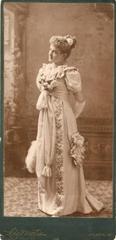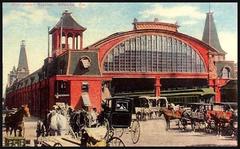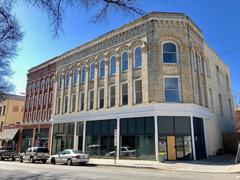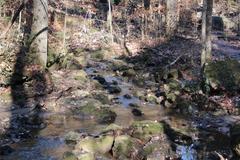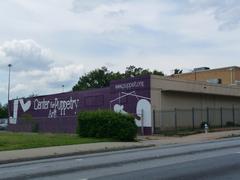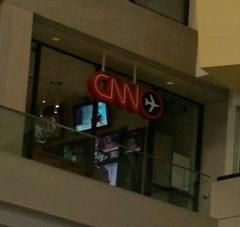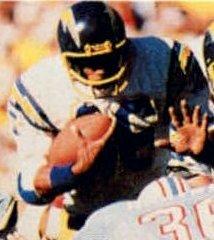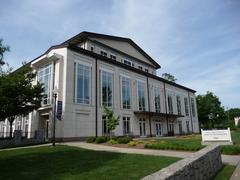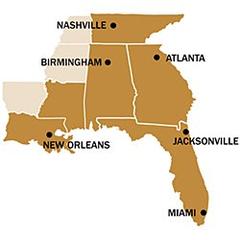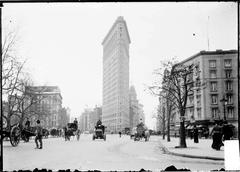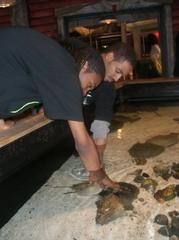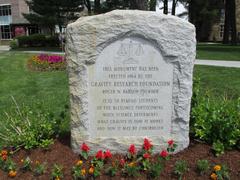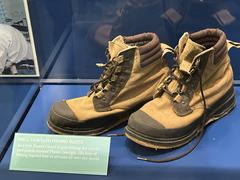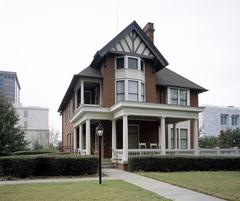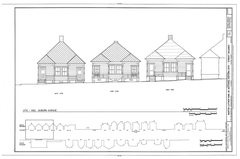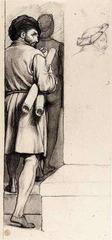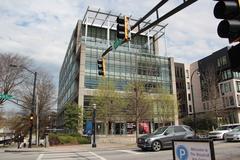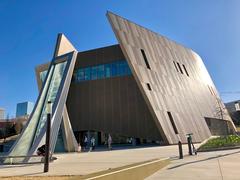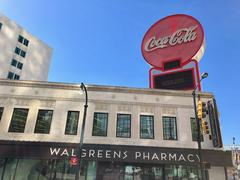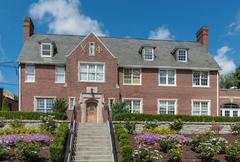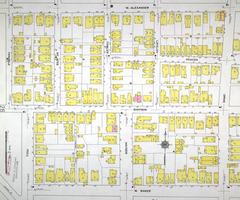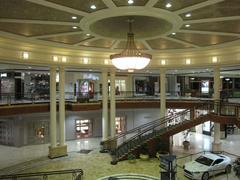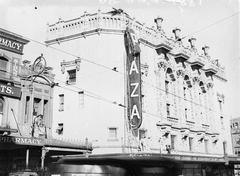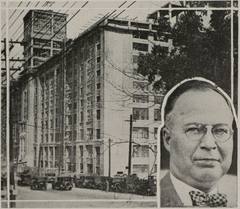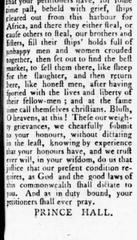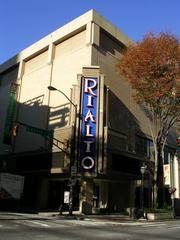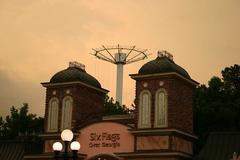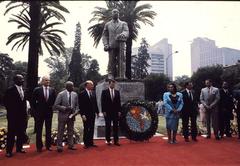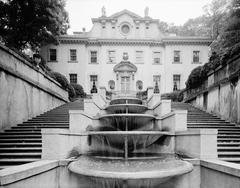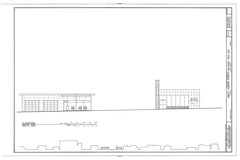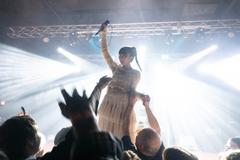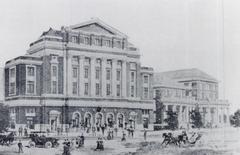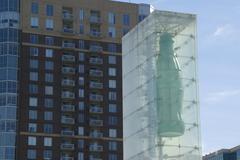
King Center For Nonviolent Social Change
King Center for Nonviolent Social Change: Visiting Hours, Tickets, and Atlanta Historical Sites Guide
Date: 03/07/2025
Introduction
The King Center for Nonviolent Social Change in Atlanta, Georgia, stands as a living testament to the enduring legacy of Dr. Martin Luther King Jr. and his philosophy of nonviolent social change. Established in 1968 by Coretta Scott King, the Center not only memorializes Dr. King’s pivotal role in the American civil rights movement but also serves as a dynamic educational institution and community hub. Located within the historic Sweet Auburn district and the Martin Luther King Jr. National Historical Park, the King Center offers a comprehensive experience for visitors, blending historical reflection, educational engagement, and opportunities for personal and collective action toward justice and equality.
This guide provides detailed information on King Center visiting hours, ticketing policies, accessibility, key attractions, annual events, educational programs, and travel tips for an enriched visit to one of Atlanta’s most significant historical sites.
Table of Contents
- History and Mission of The King Center
- Visiting Information
- Key Attractions
- Educational Programs and Community Engagement
- Annual Events and Commemorations
- Travel Tips and Nearby Atlanta Attractions
- Visual and Media Resources
- Frequently Asked Questions (FAQ)
- Contact and Visitor Amenities
- Plan Your Visit and Get Involved
- References and Further Reading
History and Mission of The King Center
The King Center was founded in 1968 by Coretta Scott King as a living memorial to Dr. Martin Luther King Jr. (The King Center). Its mission is to educate the world on Dr. King’s life, leadership, and teachings, and to inspire individuals and communities to continue his work for justice, equality, and peace. The Center is a nonprofit organization advancing Dr. King’s philosophy through educational initiatives, leadership training, and advocacy programs such as the flagship Nonviolence365® initiative (Nonviolence365®).
Key historical milestones:
- 1968: Founding of The King Center by Coretta Scott King.
- 1977: Dedication of Dr. Martin Luther King Jr. and Coretta Scott King’s crypt.
- 1980: Establishment of the Martin Luther King Jr. National Historic Site, encompassing The King Center, Ebenezer Baptist Church, and Dr. King’s birth home.
- 1986: First national Martin Luther King Jr. Day observance, spearheaded by The King Center.
- 2025: 40th Annual King Holiday Observance with global participation (King Holiday Observance).
Visiting Information
Hours, Admission, and Tickets
- General Hours: Open 7 days a week, 10:00 a.m. to 5:00 p.m.
Closed on Thanksgiving Day, Christmas Eve, Christmas Day, and New Year’s Day (Discover Atlanta). - Admission: Free for all visitors, including parking.
Some special exhibits, workshops, or guided tours may require tickets or reservations (The King Center - Visit). - Birth Home Tours: Free, but tickets must be obtained in person at the Visitor Center on the day of your visit (no advance reservations). Tours accommodate up to 10 people at a time and run hourly (every half hour in summer) (NPS - The King Center).
Directions, Parking, and Accessibility
- Address: 449 Auburn Avenue NE, Atlanta, GA 30312
- By Car: Take I-75/85 to exit #248C (Freedom Parkway); follow signs to Boulevard NE and John Wesley Dobbs Avenue (The King Center - Directions).
- By Public Transit: MARTA rail to King Memorial Station, or Atlanta Streetcar to the King Historic District stop (MARTA).
- Parking: Free visitor parking is available on John Wesley Dobbs Avenue; bus parking on both sides of the street. Arrive early on weekends and special event days.
- Accessibility: The Center is wheelchair accessible. Service animals are welcome, and assistive listening devices are available. For additional accommodations, contact [email protected] or 404.526.8900 (The King Center - Visit).
Key Attractions
- Dr. Martin Luther King Jr. and Coretta Scott King Crypt:
Set in a tranquil reflecting pool, this crypt is a sacred memorial drawing visitors worldwide (The Clio). - Eternal Flame:
Symbolizing Dr. King’s undying commitment to justice and peace (Atlanta Families). - Civil Rights Walk of Fame:
Outdoor exhibit honoring global civil rights leaders with granite markers. - Freedom Hall:
Gallery space hosting rotating exhibits on civil rights and social justice. - Visitor Center and Exhibits:
Features personal artifacts, multimedia presentations, and art installations chronicling Dr. King’s life and the civil rights movement (Atlanta Families). - Ebenezer Baptist Church:
Spiritual home of the King family and site of historic civil rights events. - Dr. King’s Birth Home:
Restored home open for tours (by ticket only), offering insight into his early life (Georgia Travel Tips). - Library and Archives:
Extensive collections open to researchers and the public by appointment.
Educational Programs and Community Engagement
- Nonviolence365® Training:
Dr. King’s philosophy is taught through self-paced online courses, trainer-led workshops, and workplace diversity programs (The King Center, Atlanta Tribune). - Youth and Community Programs:
Youth leadership development, BE LOVE initiative, annual summits, and service projects (Atlanta Families). - Community Forums:
Regular dialogue and events focused on social justice, economic empowerment, and civic engagement. - Volunteer Opportunities:
Support site operations, educational outreach, and special events (Travel Pander). - Partnerships:
Collaborations with local organizations, schools, and national partners to expand community impact (Discover Atlanta).
Annual Events and Commemorations
- King Holiday Observance (KHO):
Week-long event each January, featuring commemorative services, youth leadership programs, community service, and lectures (King Center News Release). - BE LOVE Day:
Annual event held virtually to promote Dr. King’s philosophy of love and nonviolence. - Beloved Community Teach-In:
K-12 educational programming and lesson plans (11Alive). - Special Commemorations:
Activities marking milestones such as the March on Washington and Civil Rights Act anniversaries.
Travel Tips and Nearby Atlanta Attractions
- Allow at least two hours to tour the Center and adjacent sites.
- Dress comfortably and wear walking shoes.
- Combine your visit with the Martin Luther King Jr. National Historical Park, Sweet Auburn Historic District, and National Center for Civil and Human Rights (Explore Georgia).
- Dining: Numerous restaurants and cafes are within walking distance in the Sweet Auburn area.
- Self-guided tours: Enhance your visit with apps like GPSmyCity.
Visual and Media Resources
- Photo Spots:
- The crypt and reflecting pool (alt text: “MLK and Coretta Scott King Crypt at the King Center, Atlanta”)
- Eternal Flame (alt text: “Eternal Flame at the King Center”)
- Freedom Hall and murals (alt text: “Freedom Hall exhibition at the King Center”)
- Virtual Tours and Interactive Maps:
Available via the official King Center website.
Frequently Asked Questions (FAQ)
Q: What are the King Center’s visiting hours?
A: Open daily from 10:00 a.m. to 5:00 p.m. Closed on major holidays.
Q: Is there an admission fee?
A: Admission and parking are free. Birth Home tours require a free ticket distributed on site.
Q: Are guided tours available?
A: Yes, ranger-led tours of the Birth Home are available; tickets are distributed on a first-come, first-served basis.
Q: Is the King Center accessible?
A: Yes, the campus is wheelchair accessible and offers accommodations for visitors with disabilities.
Q: Where can I park?
A: Free visitor parking is available adjacent to the Center, but plan to arrive early on weekends and holidays.
Q: What other attractions are nearby?
A: Sweet Auburn Historic District, Ebenezer Baptist Church, Martin Luther King Jr. National Historical Park, National Center for Civil and Human Rights.
Contact and Visitor Amenities
- Address: 449 Auburn Avenue NE, Atlanta, GA 30312
- Phone: 404.526.8900
- Email: [email protected]
- Website: thekingcenter.org
- Restrooms: Available in the Visitor Center and Freedom Hall.
- Gift Shop: Books, memorabilia, and educational materials on site.
- Food and Drink: No on-site dining; local options are plentiful nearby.
- Wi-Fi: Not guaranteed; plan accordingly.
Plan Your Visit and Get Involved
The King Center invites all visitors to reflect on Dr. King’s legacy and to participate in ongoing efforts for justice, equality, and nonviolent social change. To plan your visit, check current hours and events on the official King Center website, download the Audiala app for curated audio tours, and follow the Center on social media for updates and engagement opportunities. Volunteering, attending events, or supporting educational initiatives are meaningful ways to become part of the “Beloved Community.”
References and Further Reading
- This is a sample text. (The King Center)
- This is a sample text. (Atlanta Families)
- This is a sample text. (GlobeNewswire)
- This is a sample text. (Discover Atlanta)
- This is a sample text. (Nonviolence365®)
- This is a sample text. (NPS - The King Center)
- This is a sample text. (11Alive)
- This is a sample text. (Georgia Travel Tips)
- This is a sample text. (Travel Pander)
- This is a sample text. (Explore Georgia)
- This is a sample text. (GPSmyCity)
- This is a sample text. (MARTA)
By experiencing the King Center, you not only honor Dr. King’s memory but also become part of a global movement for justice, peace, and nonviolence. Plan your visit, engage with history, and carry the dream forward.


